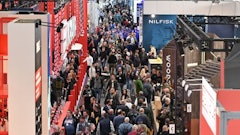Recent decisions by President Obama’s appointees on the National Labor Relations Board (“NLRB”) reflect a clear intent to support and promote union organizing efforts and procedural changes that will strengthen union bargaining power. The manufacturing sector had been a traditional focus of union organizing activities, and the current Board’s express interest in facilitating those activities is likely to encourage unions to look at smaller manufacturing companies that have not previously been viewed as viable targets. Manufacturers hoping to maintain a union-free environment should remain alert for signs of organizing efforts among their employees, and pay close attention to proposed changes in federal rules that are designed to increase employees’ awareness of their right to organize unions in the workplace and participate in collective bargaining on issues related to compensation, benefits and working conditions.
The NLRB is a politically motivated body which exerts tremendous influence on labor/management relations by:
- Overseeing union elections and adjudicating unfair labor practice (“ULP”) charges under the National Labor Relations Act (“NLRA”);
- Filing lawsuits to challenge state laws perceived to be in conflict with the NLRA; and
- Issuing General Counsel Memoranda that control case handling procedures.
Controversial NLRB decisions are often reversed by subsequent Boards appointed by a President from a different political party. The five member Board was reduced to two members at the end of President Bush’s term and the beginning of President Obama’s term when politically charged appointments were blocked by opposing political forces in Congress.
Through a combination of recess appointments and senate confirmations, President Obama finally obtained a full five member Board one and a half years after he was inaugurated. The Supreme Court recently ruled in the New Process Steel case that the decisions of the two-member Board that operated for over two years were not authorized under the NLRA, creating massive uncertainty for the parties that were the subject of those rulings.
The current Board is the first with a Democratic majority in nearly 10 years, and has predictably demonstrated a decidedly pro-union bias. Board Chair Wilma Liebman views the NLRA as “ossified” and sees it as her job to “make sure that our labor law evolves and that the rights it protects do not become illusory.” Two new Board appointees are former union attorneys, including Mark Pearce whose appointment drew massive opposition from business groups. Pearce has expressed support for Canadian style “quickie” union elections, similar to those called for under the Employee Free Choice Act.
In the fall of 2010, the Board ruled that “bannering” is permitted to encourage boycotts of businesses using non-union contractors; 16 foot-long banners declaring “SHAME” and urging customers not to patronize the establishments in question were not viewed as “coercive,” but rather were deemed to be in the same class as handbills, which have traditionally been allowed as expression of “protected speech.”
Several elections rejecting unions in manufacturing facilities have been overturned by the new Board, which ordered new elections based on questionable and contested facts involving:
- Election observers too closely aligned with management.
- Employer surveillance too close to the voting site.
- Improper “surveillance” by security guards.
- Management’s solicitation of grievances pursuant to past practice that pre-dated the union’s election petition.
- Refusal to allow employees to wear union T-shirts - even though company policy required employees to wear company uniforms.
It is interesting to note that managements’ attempts to obtain new elections following union victories have met no such success. For example, the Board dismissed one employer’s objection based on threatening letters sent from elected public officials to unit employees.
In a very troubling decision, the NLRB decided to prosecute an unfair labor practice charge against an employer based on its preliminary determination that an employee’s complaints about her supervisor in her personal Facebook postings constituted “protected concerted activity” and that her termination for the postings and the company’s internet policy prohibiting disparaging remarks about the company and its supervisors both constituted unfair labor practices. The decision to pursue this ULP charge “persuaded” the employer to enter a private settlement with the employee and an agreement with the NLRB to modify its rules which had restricted employees from discussing wages and working conditions with co-employees while not at work.
In another problematic decision the Board ordered daily compounding of interest on back pay awards after 50 years of requiring only simple interest on such awards. This will substantially increase the financial risk faced by employers engaged in lengthy litigation involving terminations.
The NLRB has also taken the unprecedented step of requiring electronic posting of remedial notices arising from ULP charges. Where employers are found to have engaged in unfair labor practices they now must, if they typically use electronic forms of communication with their workforce, distribute notices electronically in addition to posting on bulletin boards. This includes notices of employee rights, orders that the employer cease and desist from violating those rights, and any required remedial action that must be taken by the employer. There is no determination yet whether this rule will also apply to cases resolved through informal settlement agreements.
Although somewhat constrained by the 2010 elections, it is widely believed that the Board’s pro-union activism will dramatically expand over the coming months. The current Board has signaled its intent to reconsider (and is expected to reverse) several important cases decided by prior Boards dominated by Republican appointees.
The current Board is clearly sympathetic to concerns about the dramatic decrease in union membership over the last 25 years. Many Democrats sought to address these concerns by proposing the Employee Free choice Act (“EFCA”) in the last two sessions of Congress. Under EFCA, the NLRB would have been required to certify a union as the bargaining agent for a group of employees if a majority of those employees signed authorization cards designating the union as their bargaining representative. No election would be necessary or required. Many business groups argued that this “card check” system does not address union coercion, false promises or other potential abuses that may occur in connection with attempts to obtain employee signatures on these authorization cards.
The proposed EFCA would also have dramatically changed the bargaining environment, dynamics, strategy and procedure for first contracts. Once a union was certified, EFCA would have required the commencement of bargaining within ten (10) days of the union's demand to bargain. If the parties were unable to reach agreement within ninety (90) days of the commencement of bargaining, either party could request mediation assistance from the Federal Mediation and Conciliation Service ("FMCS"). If mediation failed to produce an agreement within thirty (30) days, the matter would, under the proposed provisions of EFCA, be referred to binding arbitration. The arbitrator would then determine the terms of the contract that will remain in force for two (2) years, absent mutual agreement of the parties.
EFCA also provided for increased damages and penalties to be assessed against management (but not unions) for unfair labor practices which occur while unions are organizing or during the period of negotiations for a first contract, and would have required the NLRB to seek injunctions against the employers who were alleged to have interfered with employee rights during an organizing campaign or contract negotiations.
Although EFCA has no chance of passage in the current Congress, the NLRB is attempting to implement many of its key provisions. For example, the Board recently threatened to file suit challenging ballot measures approved by voters in Arizona, South Carolina, South Dakota and Utah that responded to the “card check” specter raised by EFCA by requiring secret ballot elections for union certification. This decision is seen as paving the way for broader use of “card check” union certifications.
Mirroring one of the key EFCA provisions, a recent NLRB Legal Counsel Memo directs NLRB Regional Offices to seek injunctions requiring immediate reinstatement of employees alleged to have been discharged for anti-union reasons during the course of an organizing campaign until the ULP is resolved.
Dusting off its administrative rulemaking powers, last used in 1989, the NLRB recently proposed a new rule that would require all employers covered by the NLRA (which includes most of the 90% of private employers that are not currently unionized) to post, and distribute electronically, if the company generally uses electronic media to communicate with its employees, a notice providing:
Under the NLRA, you have the right to:
- Organize a union to negotiate with your employer concerning your wages, hours, and other terms and conditions of employment.
- Form, join or assist a union.
- Bargain collectively through representatives of employees’ own choosing for a contract with your employer setting your wages, benefits, hours, and other working conditions.
- Discuss your terms and conditions of employment or union organizing with your co-workers or a union.
- Take action with one or more co-workers to improve your working conditions by, among other means, raising work-related complaints directly with your employer or with a government agency, and seeking help from a union.
- Strike and picket, depending on the purpose or means of the strike or the picketing.
- Choose not to do any of these activities, including joining or remaining a member of a union.
The Board's submission regarding the proposed rule states that the Board:
…believes that many employees protected by the NLRA are unaware of their rights under the statute. The intended effects of this action are to increase knowledge of the NLRA among employees, to better enable the exercise of rights under the statute, and to promote statutory compliance by employers and unions.
Failure to post the notice, which the proposed rule requires to be significantly larger than other mandated postings, would be considered an unfair labor practice, presumably subject to the penalties of Section 8(a)(1) of the Act.
The sole remaining Republican appointee on the Board objected to this proposed rule, arguing that the Board does not have the authority to require such a posting because the NLRA, unlike other federal regulatory statutes, does not provide for the posting of such notices.
Many believe that this is the first in a volley of proposed rules from the NLRB, and that future rules may attempt to impose various aspects of EFCA, such as:
- Card check recognition requirement;
- Fast track elections (5-10 days versus the current 40 days) implemented in part by electronic balloting via telephone, email or internet; and
- Binding fast-track arbitration.
Other issues that the new Board may be interested in addressing include:
- Union access to company property;
- Employee use of email for union organizing;
- Defining a “supervisor” as part of the bargaining unit for union election purposes;
- Prohibiting required attendance at employer sponsored meeting about unionization; and
- Representation of non-union employees during disciplinary interviews.
Although the Employee Free Choice Act is dead in the current political climate, President Obama has signaled top union leaders, including those active in the manufacturing sector, that he will attempt to implement EFCA’s provisions through executive orders and the rule making authority of federal agencies regulating labor relations, including the NLRB.
Employers wishing to remain union-free should proactively structure, or restructure, their union-free communication programs. If the NLRB shortens the period for elections pursuant to its rule-making authority, employers will have little time between the filing of a petition and the election to convince the employees that union representation is not in their best interest. Thus, an ongoing communication program should be designed to educate employees about the benefits of remaining union-free, with contingency plans to deal with any organizational efforts that may surface. Additional information regarding the elements of an effective Union-Free Communication Program and “TIPS” to Avoid Unfair Labor Practice Charges can be found in the “Articles” section of our website: www.cf-law.com.




















